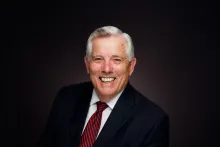World News and Trends- Nuclear weaponry: North Korea and Iran press on
According to The Guardian, U.S. President Barack Obama has warned that "suspected rogue states, such as North Korea or Iran, may be persuaded to abandon their quests only if the big nuclear powers set an example."
According to The Guardian, U.S. President Barack Obama has warned that "suspected rogue states, such as North Korea or Iran, may be persuaded to abandon their quests only if the big nuclear powers set an example." He specifically stated that "we can't reduce the threat of nuclear weapons going off unless those that possess the most nuclear weapons, the United States and Russia, take serious steps to reduce our stockpiles" ("Obama's New Offensive Against Nuclear Weapons," April 4, 2009).
In spite of warnings from the American, Japanese and South Korean presidents, North Korea defiantly launched a long-range missile April 4 in clear violation of UN Resolution 1718 prohibiting this nation from all such activities. Meanwhile, diplomatic efforts have done virtually nothing to deter Iran from pursuing its own nuclear ambitions.
But what many may not understand is that "North Korea and Iran have been collaborating on building missiles; the two are thought to have worked together in Iran to improve on basic North Korean missile designs at times when it has been impolitic for the North to test for itself. Iran has learned a great deal from this work; recently it has been making strides in its own missile technology" ("Proliferation United in Defiance," The Economist, Feb. 28, 2009, emphasis added throughout).
Veteran journalist Con Coughlin categorically stated that "Mahmoud Ahmadinejad is about to turn Iran into a nuclear rogue state" ("His Master's Angry Voice," Standpoint, Feb. 9, 2009). Meanwhile, the United Nations again confirmed that Iran is refusing to cooperate with inspectors charged with monitoring Iran's nuclear program.
President Obama has tried to open up a direct dialogue with Iran on this nuclear issue. Still, some observers like America's former UN Ambassador John Bolton have said that "the danger is that direct talks may facilitate, not reduce, threats to U.S. interests" ("Iran Clinches Its Fist," The Wall Street Journal,March 3, 2009).
But most alarmingly, the Financial Times published an article by a correspondent in Washington, D.C., titled "US May Cede to Iran's Nuclear Ambition" (April 4-5, 2009). Astonishingly, the text begins by stating, "U.S. officials are considering whether to accept Iran's pursuit of uranium enrichment ...." This possible reversal of policy certainly looks a lot like appeasement!
Review of U.S. policy in this matter has been commissioned by the White House, and "diplomats are discussing whether the U.S. will eventually have to accept Iran's insistence on carrying out the process."
Former U.S. presidential candidate Rudy Giuliani, who was mayor of New York City during the attacks of Sept. 11, 2001, wrote an incisive article for the September-October 2007 issue of Foreign Affairs. Titled "Towards a Realistic Peace," it emphasized several unpleasant truths.
"Above all we must understand that our enemies are emboldened by signs of weakness," he wrote. "Radical Islamic terrorists attacked the World Trade Center in 1993, the Khobar Towers facility in Saudi Arabia in 1996, our embassies in Kenya and Tanzania in 1998 and the U.S.S. Cole in 2000. In some instances we responded inadequately. In others we failed to respond at all. Our retreat from Lebanon in 1983 and from Somalia in 1993 convinced them that our will was weak."
Giuliani concluded his article with this telling statement: "The 9/11 generation has learned from the history of the twentieth century that America must not turn a blind eye to gathering storms . . . Above all, we have learned that evil must be confronted—not appeased—because only principled strength can lead to a realistic peace."
When Giuliani wrote these uncomfortable facts, he may have been anticipating the challenge of serving as U.S. president. The question is: Will the current president heed them? (Sources: The Guardian, Standpoint, Financial Times, The Economist [all London], The Wall Street Journal, Foreign Affairs.)




